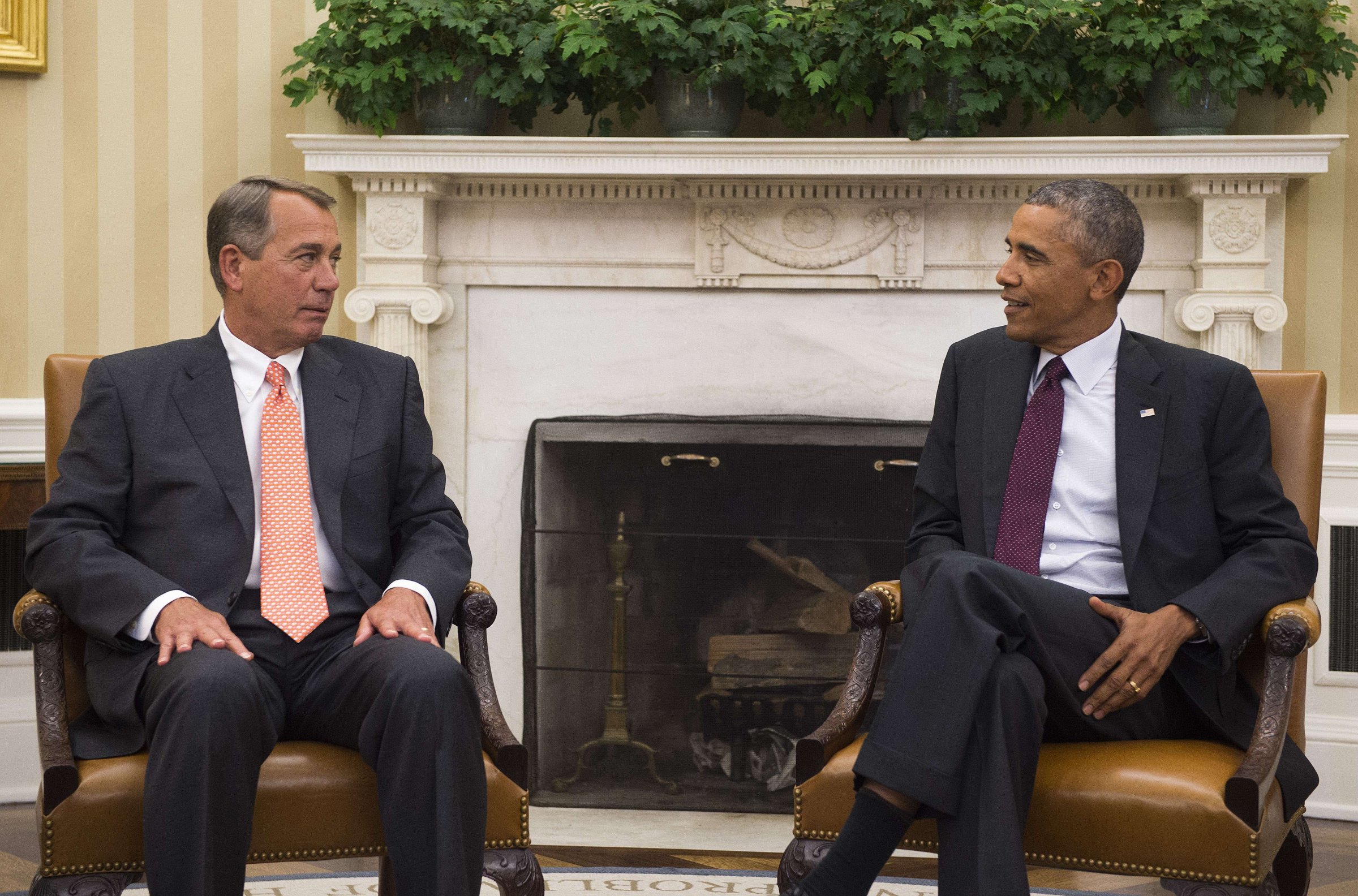
The politics of passing the largest trade agreement ever—further tying the economies of 12 countries nested on the Pacific Ocean, an area larger than the Earth’s landmass—is complex, to say the least.
But House Ways and Means Chairman Paul Ryan, a pivotal figure on trade in his new perch, appears optimistic that Congress can pass a major bill that would give President Obama greater authority to negotiate an agreement known as the Trans Pacific Partnership, which would affect about 40% of the world’s GDP and about a third of the world’s trade. That is, as long as Obama does his part, of course.
“This is an area we can find common ground with the President, but we need the President to engage,” said Ryan, still sporting his hunting beard at the GOP joint Senate-House retreat, a first for the party in 10 years. “We need the president to engage on this issue with his own party. We need him to make it a priority in the State of the Union. We need him to work with his party to help get votes.”
Ryan’s statement, echoed by House Majority Leader Kevin McCarthy, underlines the difficulties in getting a deal sought by Obama for years. Granting “fast-track” authority, which would allow limited congressional debate, no amendments and an up-or-down vote, poses political perils across the aisle. Liberals, backed by labor unions like AFL-CIO, have raised concerns that TPP will exacerbate income inequality and have already begun planning how they could slow down the process in the Senate. Last month, Massachusetts Sen. Elizabeth Warren expressed concern that TPP could increase U.S. access to risky financial products and take away regulators’ tools over foreign banks “to prevent the next crisis.”
And even though a new Republican-controlled Senate increases the number of pro-trade congressmen, conservatives have been furious with Obama’s executive actions—voting in the House on Wednesday to claw back years of his immigration decrees—and will be hard pressed to grant the Administration the leverage it needs to negotiate. Ryan points out that the Republican party, however, is largely pro-trade.
“By and large the vast majority of our members are in favor of getting these kinds of trade agreements because they know it’s good for business,” said Ryan. “The question that obviously you hear about is should we give this president TPA? TPA is asserting congressional prerogatives early in the process. So it’s a good thing no matter who the president is … and to make sure we get the best deal.”
Still, there is already sniping that the other party could tank the deal before congressional leaders even announce a goal of a timeline of when they would like to pass TPA.
“The one thing we have found time and time again is where are the 50 Democrats,” asked McCarthy, before noting that last year Obama urged Congress for a trade bill in his State of the Union address and then didn’t talk about it a day latter in a private meeting with then-Senate Majority Leader Harry Reid. “The President has to lean in,” said McCarthy.
Some Democrats have said privately that it may be conservatives who tank the trade efforts.
“I think Republicans are going to confront the reality that doing TPA now goes against their central complaint about giving more authority to the president of the United States,” says a House Democratic aide. “They’ve been criticizing the president for months—if not longer—that he’s the emperor-in-chief. And yet they’re going to grant him basically complete authority to put a trade agreement in front of Congress and get an up-and-down vote? The closer this gets to that happening, the more their inexperienced members become familiar with the topic, they’re going to confront challenges in the party.”
If Congress doesn’t pass a trade-promotion authority bill, other countries will be more hesitant to engage in commitments with the U.S. since Congress could amend the deal. But members of Congress have a number of trade concerns spanning labor, environmental and intellectual property issues. In 2013, 60 senators and 230 representatives urged the Administration to address currency manipulation and exchange rate policies that they said could increase the trade deficit and kill jobs.
But Republican leaders at a retreat in Hershey, Pa.—“The Sweetest Place on Earth”—seem willing to work to overcome those obstacles.
More Must-Reads from TIME
- Why Biden Dropped Out
- Ukraine’s Plan to Survive Trump
- The Rise of a New Kind of Parenting Guru
- The Chaos and Commotion of the RNC in Photos
- Why We All Have a Stake in Twisters’ Success
- 8 Eating Habits That Actually Improve Your Sleep
- Welcome to the Noah Lyles Olympics
- Get Our Paris Olympics Newsletter in Your Inbox
Contact us at letters@time.com